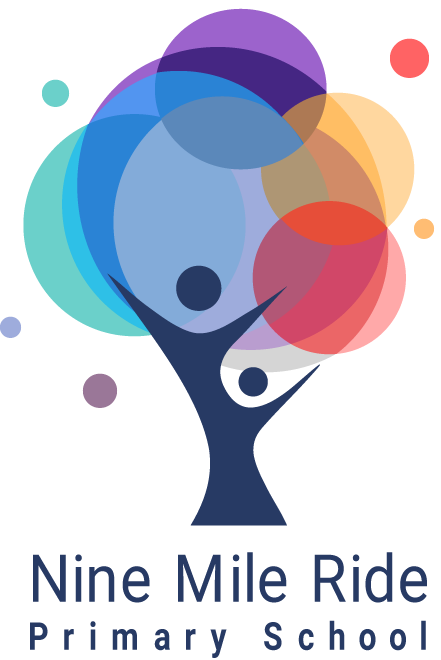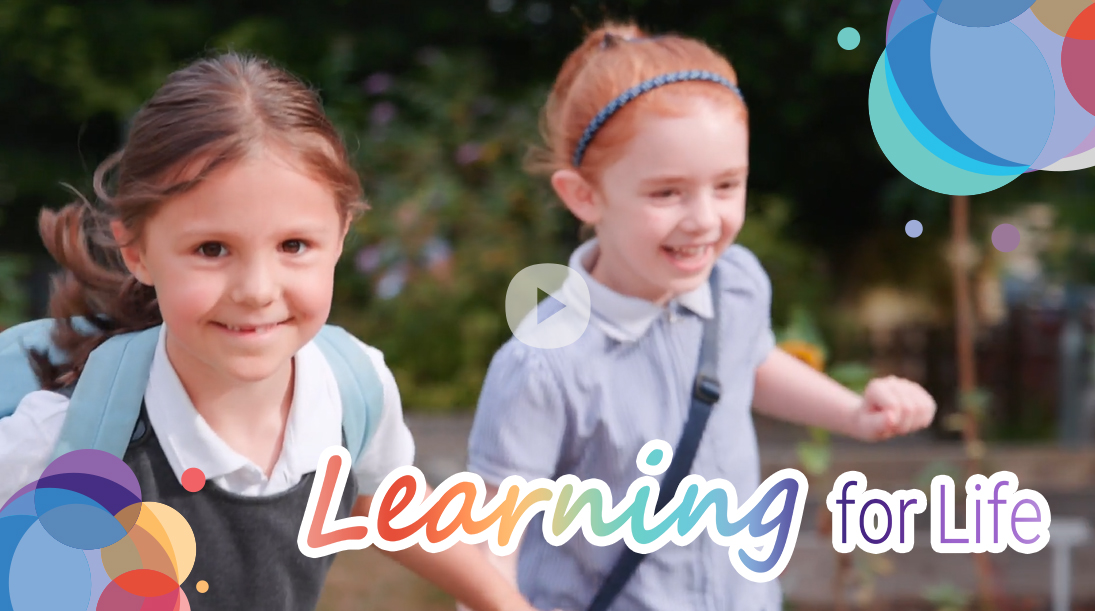Information for Parents
Preparing our pupils to thrive in a tricky world is not just the job of schools and teachers. Parents are educators too. The way we talk to our children, the rituals we create for them around mealtimes and bedtimes, the activities we encourage, the role models we provide, the materials we place within their reach: all of these carry messages that influence their growing minds.
The domestic curriculum is a curriculum children learn at home and is conveyed more by the way things are done rather than specific lessons that are taught. For example, you may play a game of snakes and ladders in a way that models engagement, sportsmanship, conversation, taking turns, fairness or as a half-hearted involvement where you check your phone whilst playing. It’s not what you do; it’s the way you do it.
Communication
Being able to name and talk about feelings is so important. There is no short cut to finding opportunities for your child to experience and then give a name to a full range of feelings. Without this they cannot express themselves effectively. Books are a great way to allow children to recognise how characters are feeling which will help them to express their own feelings. Once children can recognise and name their own feelings, they are well on their way to finding ways of dealing with what they are experiencing and feeling. Within the home, it is important to create a climate in which children feel able to express their feelings and be listened to as they do so. Communication involves learning how to offer opinions and some children find this easier to do than others. Most children have opinions but do not always know how or when to share them. Around the kitchen table is a perfect location for children to practice.
Commitment
Commitment to learning is essential if your children are going to find their passion in life. For children to find their passion they must be given opportunities to try things out and the family can create lots of opportunities for tasters. A simple thing to do with children on a wet day is refuse to listen when they say they are bored and give them a selection of cardboard boxes, scissors, glue and their imagination and see what happens. The home is an ideal environment for children to learn about taking responsibility and keeping pets is a good example, so too are chores like cleaning, cook, and gardener. Sometimes making it sound more grown up is a way to enlist their imaginative engagement. Children need to be resilient and not give up when tasks get hard or tricky. They can build their levels of commitment by having a strategy toolbox of what they should do when things get tough and they are challenged.
Collaboration
This is a core attribute of human beings. Children can worry about friendships at school however the home is a safe environment for children to practice interacting with people of all ages. In the home, we can model how we are all individual, how we value differences and what it means to work together. Being a good collaborator means that we have to be able to listen empathetically, show kindness to others and give and receive feedback well. For a parent, listening with empathy is a hard thing to do. It is really easy to jump in and give advice or to cut short a child’s explanation because we want to reassure them. Children watch their parents and how they treat others around them so remember that actions speak louder than words. Receiving effective feedback is one of the most effective methods of how we learn and grow. In terms of giving feedback, it is helpful to find positive things to notice first and then be sure to suggest different courses of action with phrases like: ‘You might like to…’ In terms of receiving feedback the most important gift you can give your child is not to act defensively. By means of body language and words, show them how important it is to just listen and learn.
Confidence
Being confident involves developing and using a growth mind-set, being a can-do person and being able to act independently. Children, who believe they can get better at things, normally can with practice and determination. Another important job for parents is to share things that they find difficult, this way, children learn that struggling and making mistakes are normal and healthy aspects of learning.
Confidence comes from experience of planning and seeing difficult tasks through. It involves the ability to set goals and then plan how you will achieve them. Homework is an opportunity to help children break a task down into smaller components, think through how long each part might take, make a plan, do it and then talk about how it went.
Curiosity
Curiosity is at the heart of all learning. Being curious involves noticing things, reading avidly and asking good questions. Children have curiosity in abundance, constantly pestering those around them with questions. It can be slightly wearying but if you manage to show genuine interest in the enquiry, such role modelling will be a powerful influence.
Being able to notice is an essential component of curiosity so family walks or car journeys are a great way of practicing noticing. Smart phones are a great way to take photos that you can return to later and discuss.
Reading for pleasure is a great habit to instil. Some children need little encouragement and others need lots of patient encouragement. Children who see the grown-ups around them reading inwardly record the importance attached to the activity. Reading with your child encourages a love of books and also provides opportunities for questioning. Questions are an outward expression of curiosity and the home is the obvious place for this to happen. A good resource for encouraging curiosity is the BBC iWonder website.
Creativity
Being creative is a way for your child to be unique. It involves having good ideas, dealing with uncertainty and making links between unconnected things. A big barrier of being creative for children is the fear of making mistakes or getting it wrong and you will want to do all you can to ‘park’ this side of their brains sometimes.
Uncertainty is an inevitable part of life and demands creativity. If everything was straightforward and predictable there would be no need to be creative. Creativity calls for children to be resilient because during their time in school they will come up against many problems where there is no easy answer. Children will have to wrestle with ideas of uncertainty and likelihood.
Making connections and seeing patterns is an important part of being creative and mind maps are a very good way of seeing connections and links.

